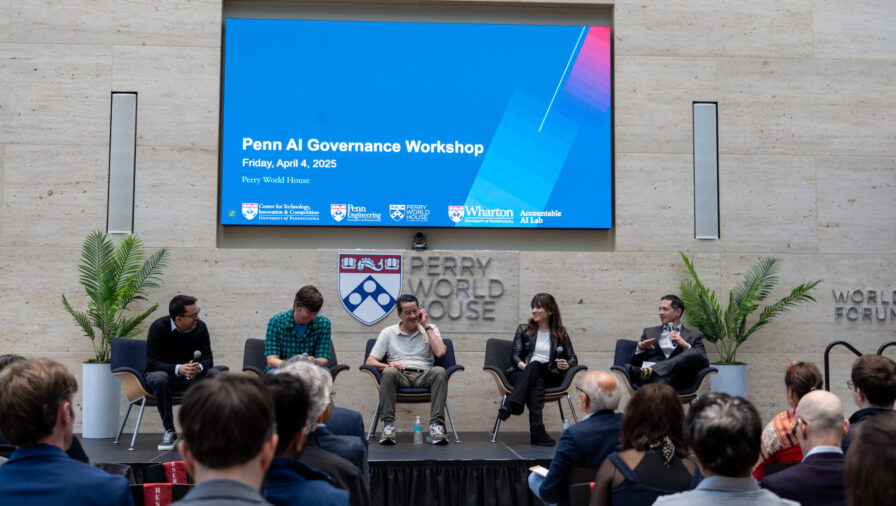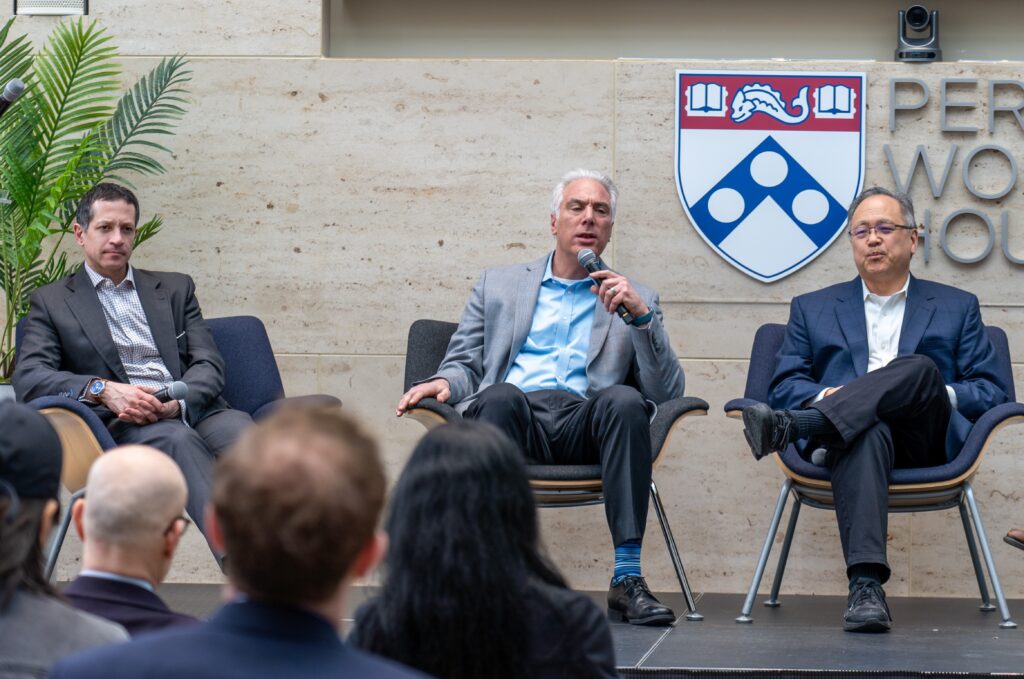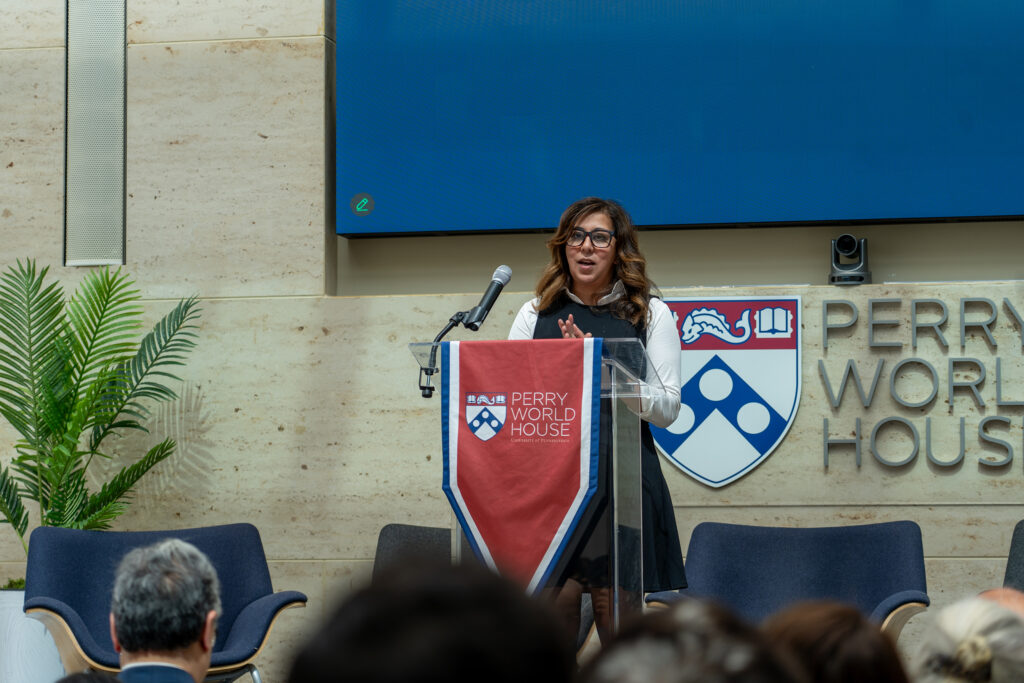Exploring the Governance of Artificial Intelligence

Perry World House, the Wharton AI & Analytics Initiative, the Wharton Accountable AI Lab, the School of Engineering & Applied Science, and the Center for Technology, Innovation & Competition at Penn Carey Law School were thrilled to host researchers from across the University of Pennsylvania for an in-depth discussion of key issues surrounding the governance of artificial intelligence (AI). The April 4 workshop featured scholars—including from five different Penn schools—presenting research.
Michael Horowitz, faculty director of Perry World House and Richard Perry professor, one of the co-organizers, said that “bringing together this community will help us work together and figure out how to have even more impact through our research, teaching, and engagement in the coming years. We will build on this as we think about the right approaches to governance and policy in the boardroom, by governments around the world, and in international negotiations.” Co-organizer Kevin Werbach, Liem Sioe Liong/First Pacific Company professor at the Wharton School—who runs the Wharton Accountable AI Lab—described the conference as “[A] reflection of the incredible work on AI policy and governance happening across the university. Penn’s AI research is already impacting the world, and Penn can be a leader in engaging with the risks and challenges that AI poses.”
In panels throughout the day, Penn faculty discussed their research in relation to key AI topics, such as AI oversight, AI policy, the social impacts of AI, and teaching AI. On the first panel, focused on the impact of AI on society, Penn Engineering faculty member Chris Callison-Burch described the AI class he teaches each year for 500 students and the way developing and using AI tools has had to change over time due to rapid advances in AI technology. Other discussions focused on the regulatory environment both domestically and internationally, the general consensus being that government generally trails the cutting edge of technology, which can make regulation challenging. Scholars also discussed the need for greater AI literacy, potential risks surrounding AI safety that might require new regulatory approaches, the need for greater AI literacy inside and outside government, and regulating some potential impacts of AI, which often involves determining how to enforce existing regulations in the age of AI. The organizers hope to bring together
Keynote speaker Radha Plumb, distinguished visiting fellow at Perry World House and senior fellow at the Wharton Accountable AI Lab, is the former chief digital and artificial intelligence officer at the U.S. Department of Defense. In front of a packed house at Perry World House, Plumb argued that AI has great promise due to technological advances in predicting, detecting, generating, and deciding. She then discussed how she approached leading on AI in the Department of Defense, differentiating between what she called the “mission of warfighting” and the “business of warfighting.” The mission of warfighting includes many of those AI applications, such as those directly on the battlefield, unique to the military, while the business of warfighting includes many of the AI applications in areas such as logistics and human resources that companies and universities are grappling with around the world. Plumb also sat down with Perry World House later that afternoon to discuss a bit more about the impact that AI is having on the defense industry.

Perry World House Faculty Director Michael C. Horowitz, Liem Sioe Liong/First Pacific Company professor at the Wharton School Kevin Werbach, and Founding Director of the Center for Technology, Innovation & Competition Christopher Yoo speaking on a panel on AI policy.

Perry World House Distinguished Visiting Fellow Radha Plumb delivering the workshop’s keynote address.

